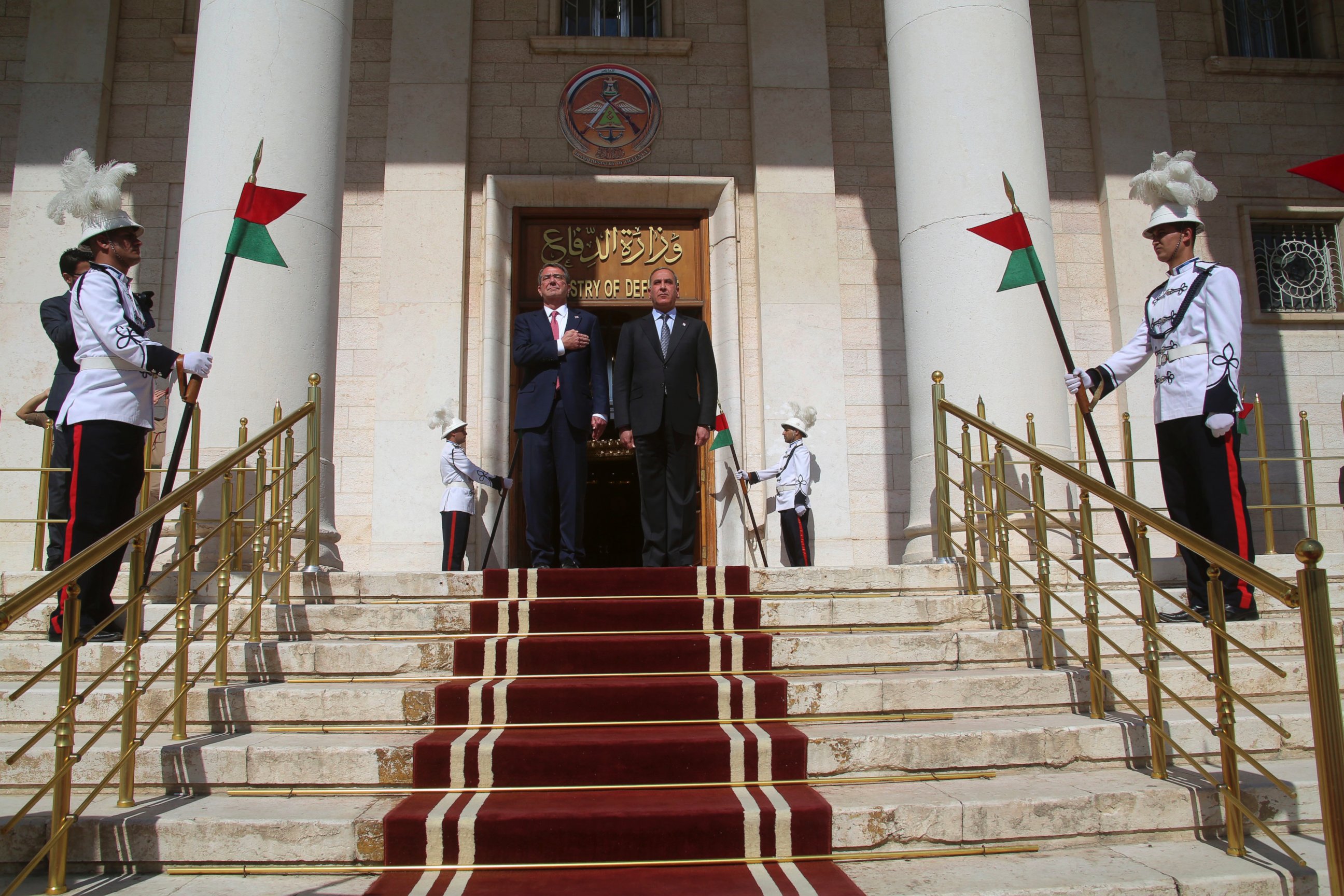US to Send 200 More Troops to Fight ISIS in Iraq
Defense Secretary Ash Carter announced the move in Baghdad today.
— -- Defense Secretary Ash Carter has announced that more than 200 advisers will be sent to Iraq to battle ISIS. Carter, who is currently in Baghdad, said government officials in Iraq have also authorized the U.S. to use Apache helicopters in the fight against the extremist group.
During a visit to Baghdad, Defense Secretary Ash Carter announced 217 more advisers — personnel who will serve as planners, trainers, aviation support and security. According to a senior Defense official traveling with Carter, many of these additional troops will be Army Special Operations.
Carter told reporters this will put Americans closer to the action since they can advise operations that are relocating and following the forces. Having advisers closer to the lower headquarters will allow them to respond in "a more agile way" to battlefield conditions, he added. "We are recommending that because of the very powerful effect it can have," said Carter.
The initiative is part of newly expanded authorities the Obama administration has been seeking to speed up the fight against ISIS in Iraq and Syria and part of Combined Joint Task Force Operation Inherent Resolve.
Carter stressed that the new moves have been determined in partnership with Iraq. "We're on the same page with Iraqi government," he told reporters.
The announcement is seen as supporting an offensive that has been discussed for the past several months, aimed at recapturing Mosul, Iraq’s second largest city. ISIS has controlled the city since June 2014.
This deployment will raise the authorized number of U.S. military forces serving in Iraq from 3,870 to 4,087 said Captain Jeff Davis, a Pentagon spokesman. U.S. officials have acknowledged that there are likely another 1,000 U.S. forces in Iraq serving in various temporary assignments, including a company of Marines who recently established an artillery support position 60 miles south of Mosul.

The additional American advisers headed to Iraq will be authorized to advise and assist Iraqi military forces at lower levels, including brigade and battalion headquarters.
The advisers will be closer to the operations against ISIS but will not engage in fighting with Iraqi military forces. They will remain at the headquarters level where they can assist with Iraqi military planning against ISIS Iraqi forces -- until now they had only been allowed to advise at the much higher Iraqi corps and division level.
Carter also announced that the U.S. will bring in additional rockets, specifically another HIMAR (High Mobility Artillery Rocket System), to Iraq. Two others are currently based in Anbar Province, according to Defense officials, which have been used in strikes against ISIS positions.
Iraq has also authorized the use of U.S. Apache attack helicopters to support the country’s military operations, an offer first made by Carter last December to assist with the Iraqi offensive to retake Ramadi. Until now, Iraqi Prime Minister Haider al Abadi had declined, which U.S. officials attributed to politics in Iraq that have largely opposed a greater U.S. military role.
American Apache helicopters have been based in Iraq since the summer of 2014, but have mostly been restricted only to the protection of U.S. troops. They have been used in only one military operation since then, an operation against ISIS west of Baghdad, in October 2014.
Carter also announced that with agreement of the Iraqi government the United States will provide $415 million in funding to the Kurdish Peshmerga whom he labeled "one of the most effective fighting forces" combatting ISIS.
The payments, which will be made monthly and come from the existing Pentagon fund for training Iraqi military, are intended to help the Kurdish government overcome the severe impact of a budget crisis prompted by the drop in world oil prices.
Carter did not comment on whether the administration has decided to send more U.S. Special Operations advisers to northeast Syria, where 50 advisers have been assisting Arab and Kurdish forces in against ISIS since earlier this year.




